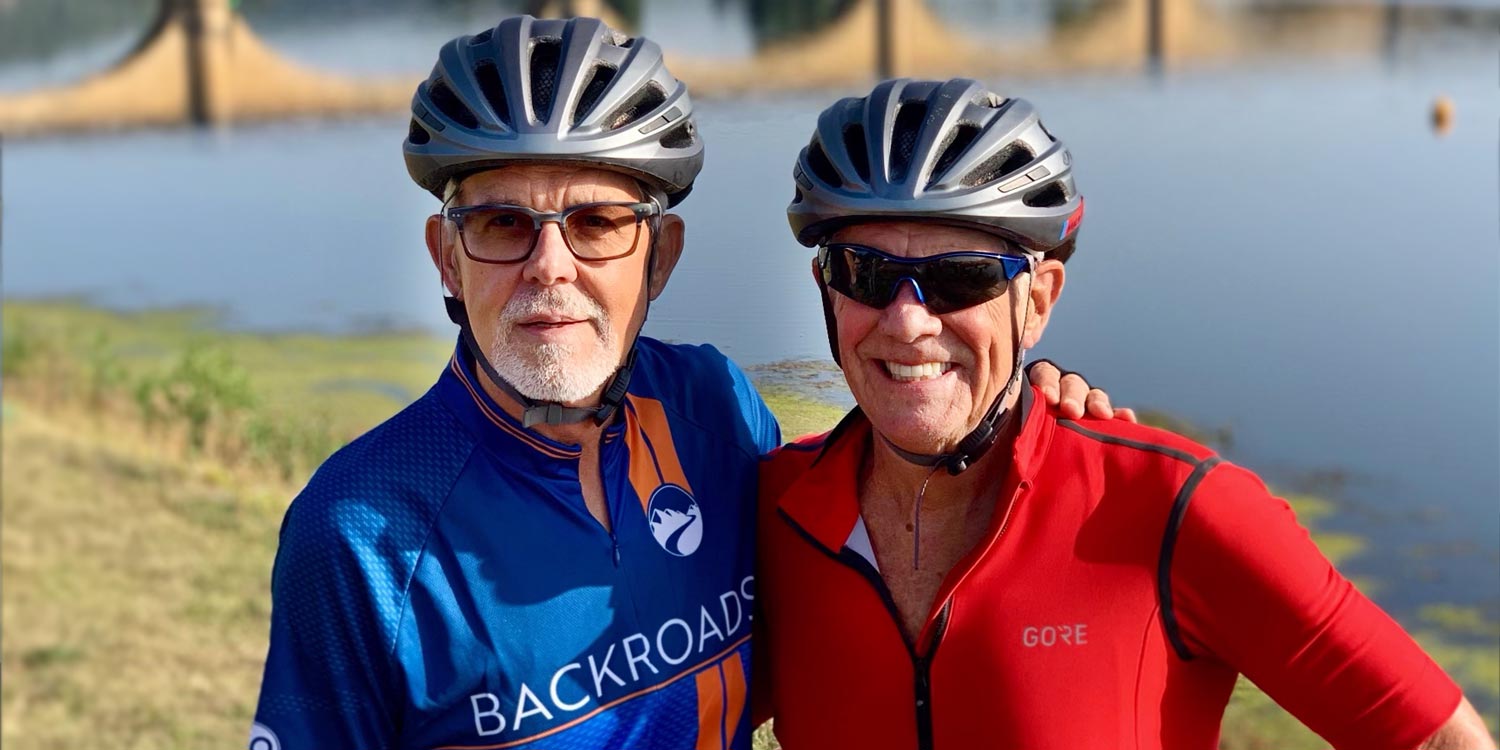George Getz was a healthy, vigorous 75-year-old when he was suddenly struck by extreme dizziness that made even walking impossible. After undergoing comprehensive testing and vestibular rehabilitation -- physical therapy focused specifically on balance disorders -- at Duke Health, he is back to the active life he enjoys.
A Sudden Overwhelming Dizziness
While making breakfast one morning in March 2022, Getz was overwhelmed by dizziness. “I was so dizzy I could hardly stand up. I'd never experienced anything like it,” he said. Getz spent the day in bed, worried about the cause of his condition and unable to shake the horrible feeling.
With the help of his husband, Michael, Getz paid a visit to his primary care doctor, Bryce Kerr, MD, near their home in Wake Forest, NC. Dr. Kerr suspected that Getz had vestibular dysfunction, which occurs when the balance system in the inner ear is not functioning properly. Getz was sent to Duke for further testing and vestibular rehabilitation. This special type of physical therapy involves exercises and other treatments to alleviate symptoms of balance disorders including dizziness, nausea, and poor balance.
Vestibular Rehabilitation Mitigates Balance Disorder Symptoms
Extensive testing -- including an MRI, vestibular function tests, neurological and audiological evaluations -- confirmed that Getz had a type of vestibular dysfunction called vestibular hypofunction. Getz began working with Nicole Morales, a physical therapist at Duke Health who is specifically trained in vestibular rehabilitation. She gave him balancing exercises to perform at home that addressed his symptoms as well as habituation exercises to reduce his response to situations and stimuli that caused his dizziness. Because Getz was concerned about when and where his next attack would occur, Morales also taught him cognitive behavioral techniques like focused breathing that he could use to quell his anxiety.
Achieving His Recovery Goals
Morales described Getz as a “diligent patient” who performed his exercises exactly as prescribed. His active participation in treatment allowed him to reach his goals, which included walking on different surfaces -- sometimes with his eyes closed or while performing another task -- without losing his balance, she explained.
Once worried that his active life was over, Getz happily reported that he and his husband recently returned from an extensive trip abroad. “There was a lot of rushing through airports and lugging suitcases. I made it through three weeks of that without any problem,” he said. “The bottom line is that the care I received at Duke saved me from that terrible experience. They cared a lot. That's important. And now I hardly think about it anymore.”





